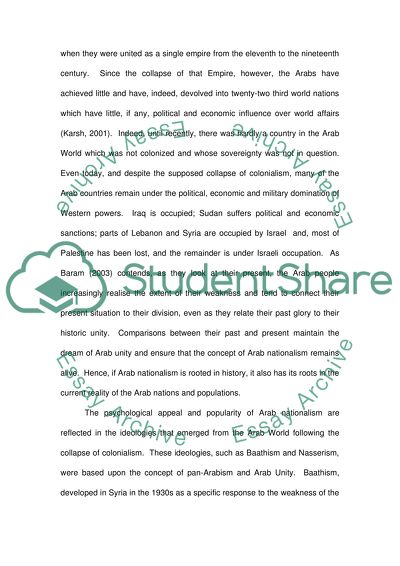Cite this document
(“Arab Nationalism Essay Example | Topics and Well Written Essays - 2000 words”, n.d.)
Retrieved from https://studentshare.org/politics/1514293-arab-nationalism
Retrieved from https://studentshare.org/politics/1514293-arab-nationalism
(Arab Nationalism Essay Example | Topics and Well Written Essays - 2000 Words)
https://studentshare.org/politics/1514293-arab-nationalism.
https://studentshare.org/politics/1514293-arab-nationalism.
“Arab Nationalism Essay Example | Topics and Well Written Essays - 2000 Words”, n.d. https://studentshare.org/politics/1514293-arab-nationalism.


